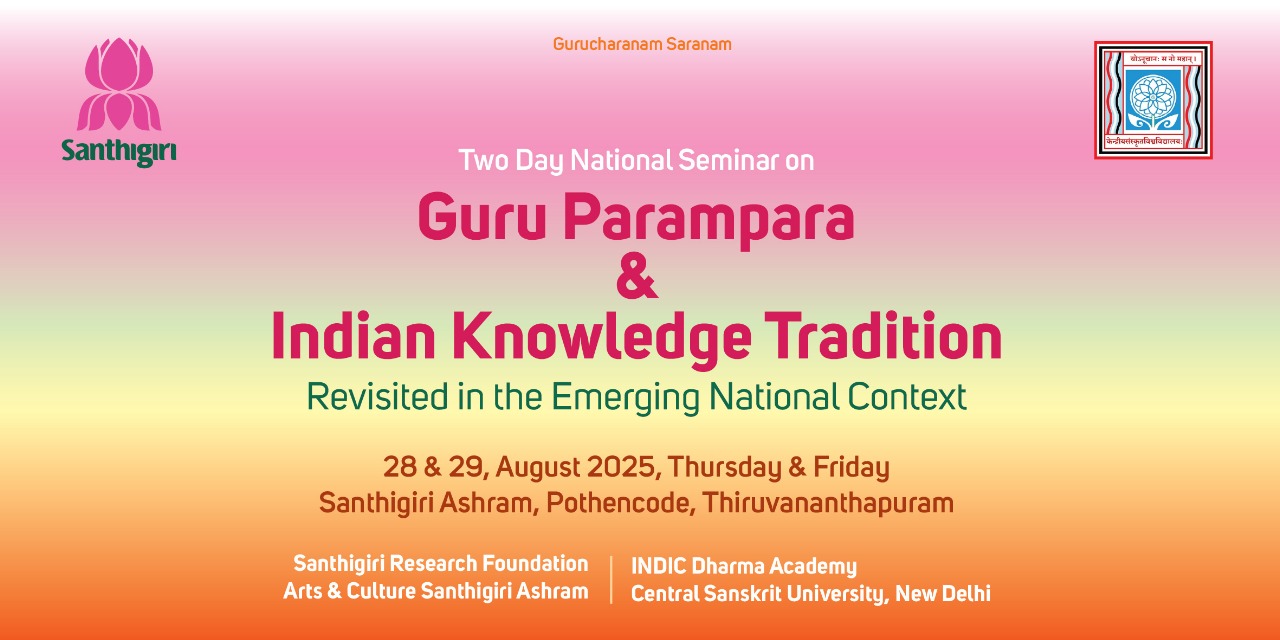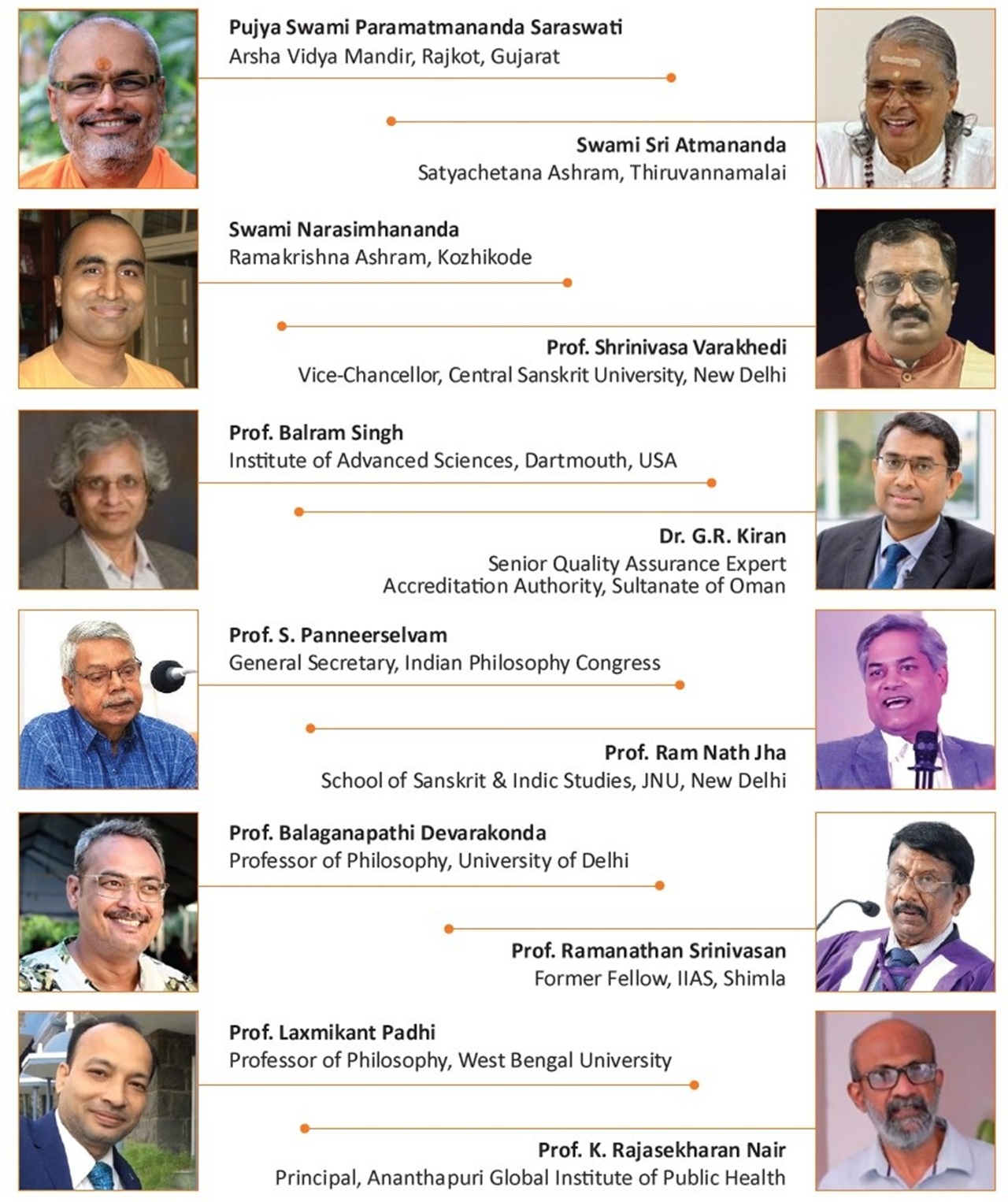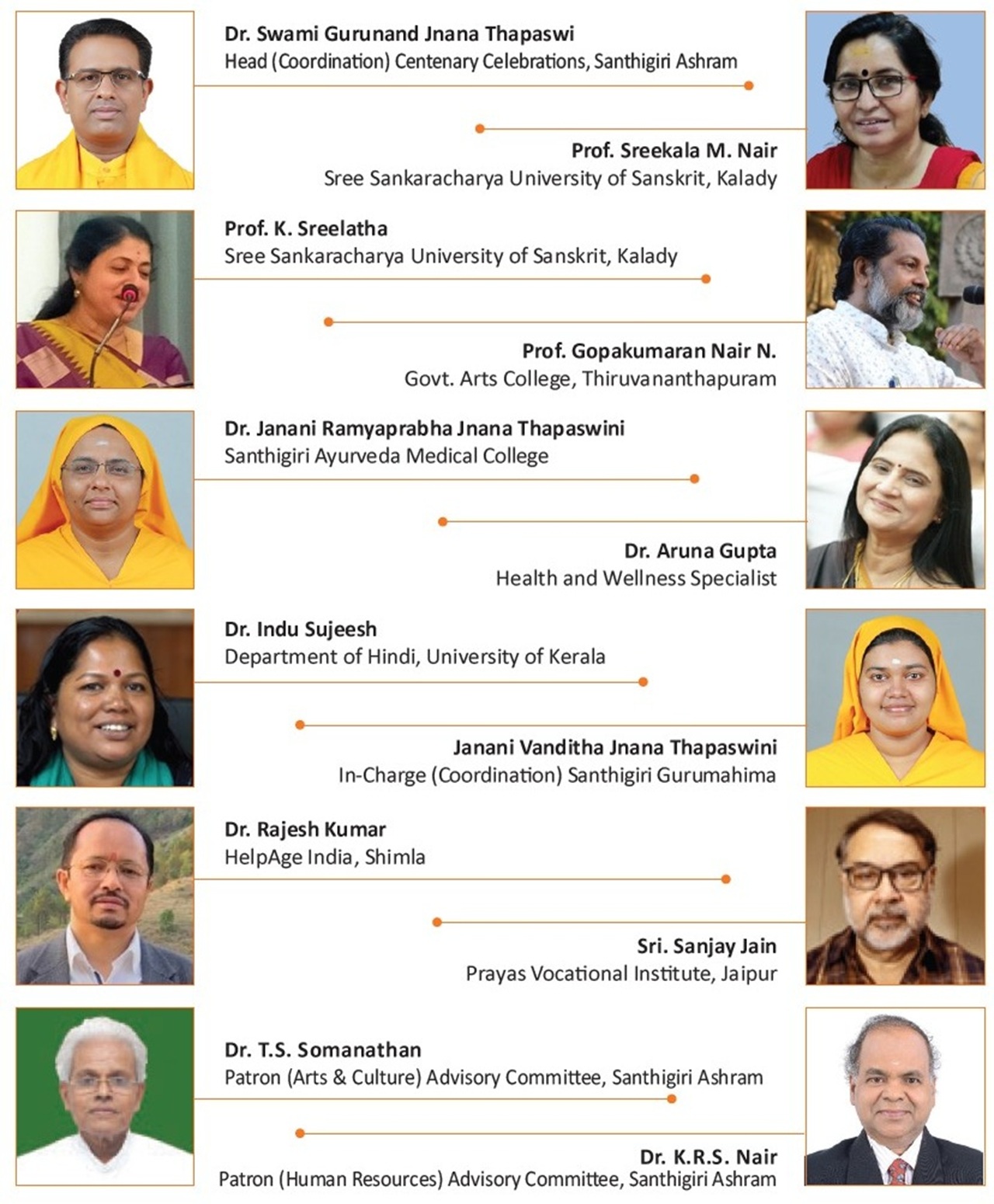
Context of the Seminar
For some time, there have been concerted national efforts to promote and achieve social
harmony and cultural progress through the revitalization of India's cultural legacy and ancient
knowledge systems. However, pride and confidence in the cultural ethos of a society are the
prerequisites for a people to achieve national integration, economic progress, and cultural
development. In this context, it is significant to address and resolve the fossilization of
tradition, if any, which often hinders the organic and sustainable development of a society.
Therefore, it is essential for the success of our ongoing multilevel national initiatives to
examine the present social, cultural, and religious state of the country and identify the factors,
if any, that disrupted the continuity of India's sublime Dharma-centred spiritual and cultural
traditions, which once produced and sustained India's Wisdom and knowledge systems.
India's awe-inspiring Dharma-centred knowledge tradition, nurtured and nourished by the
Vedic Rishis and successive Guru Parampara of India, was universalistic and all-inclusive.
Although Indian Culture is a synthesis of various spiritual, philosophical, and religious streams,
the uninterrupted knowledge tradition, originating with the Vedic rishis, constitutes the
foundation of Indian spiritual science. The knowledge tradition, nurtured and sustained by
successive Guru Parampara through diverse knowledge branches, constitutes the sum and
substance of the Indian cultural legacy.
Focus of the Seminar
The dialectical trajectory of Guru Parampara and Indian spiritual tradition gave rise to the
ancient Indian knowledge systems, which stand out as marvels of the highest attainment of
human consciousness. The social and cultural environment that evolved under the spiritual
guidance of ancient Vedic Rishis constituted the fertile soil in which the knowledge systems
developed and evolved. Therefore, in any discussion on Indian knowledge systems, the
tradition that produced the knowledge systems deserves focused attention. It was the
spiritual, social and cultural ecology of the given periods that gave rise to the knowledge
systems. It means that the traditions and system of knowledge prevailing at any particular time
are complementary and mutually supportive. Any decline and calcification of one impacts the
other. For knowledge systems to be vibrant and living, there should also be a vibrant and living
social and cultural ecology that sustains a tradition. It was the eclipse of a vibrant and living
social and cultural environment that led to the fossilization of our tradition, resulting in a lack
of further development in knowledge systems.
Themes of Discussion
The deliberations will revolve around a broad spectrum of themes, including:
• The historical and philosophical perspective of Guru Parampara.
• Revisiting the spiritual and cultural ecology that sustained knowledge systems.
• The interface between Indian wisdom traditions and modern scientific civilization.
• Problems and prospects of Indian Knowledge Systems in shaping human futures.
• The Santhigiri School of Thought and its contribution in the New Age.
• The revitalization of traditions in shaping society, culture, economy, and polity.
Resource Persons
The seminar will feature some of India’s most respected voices in spirituality, philosophy, and
Indic knowledge. We are privileged to host a distinguished panel of spiritual leaders, scholars,
and academicians contributing their insights to the seminar:

